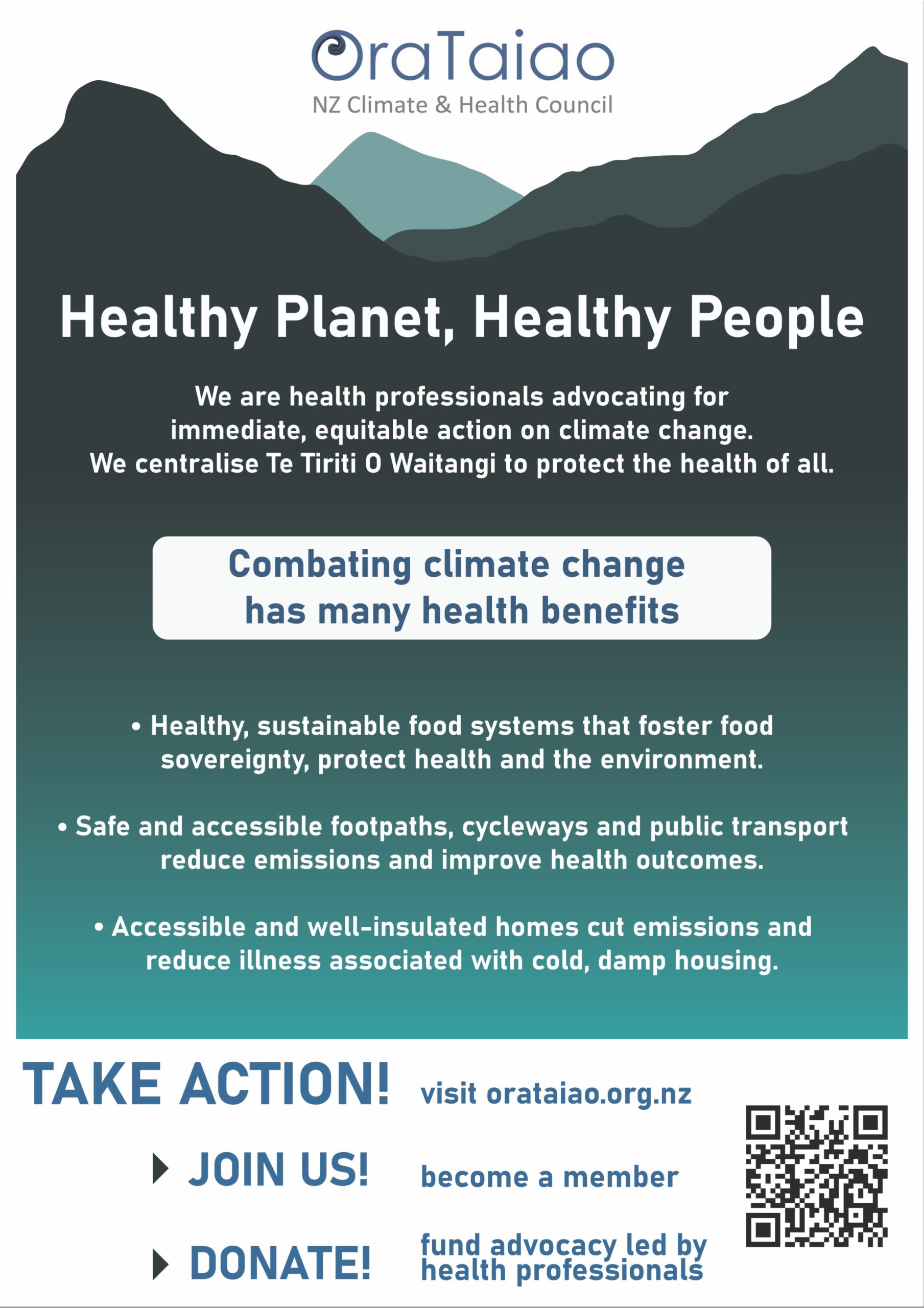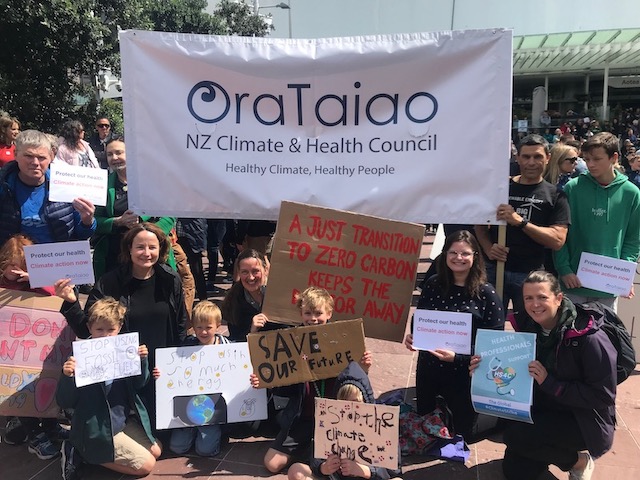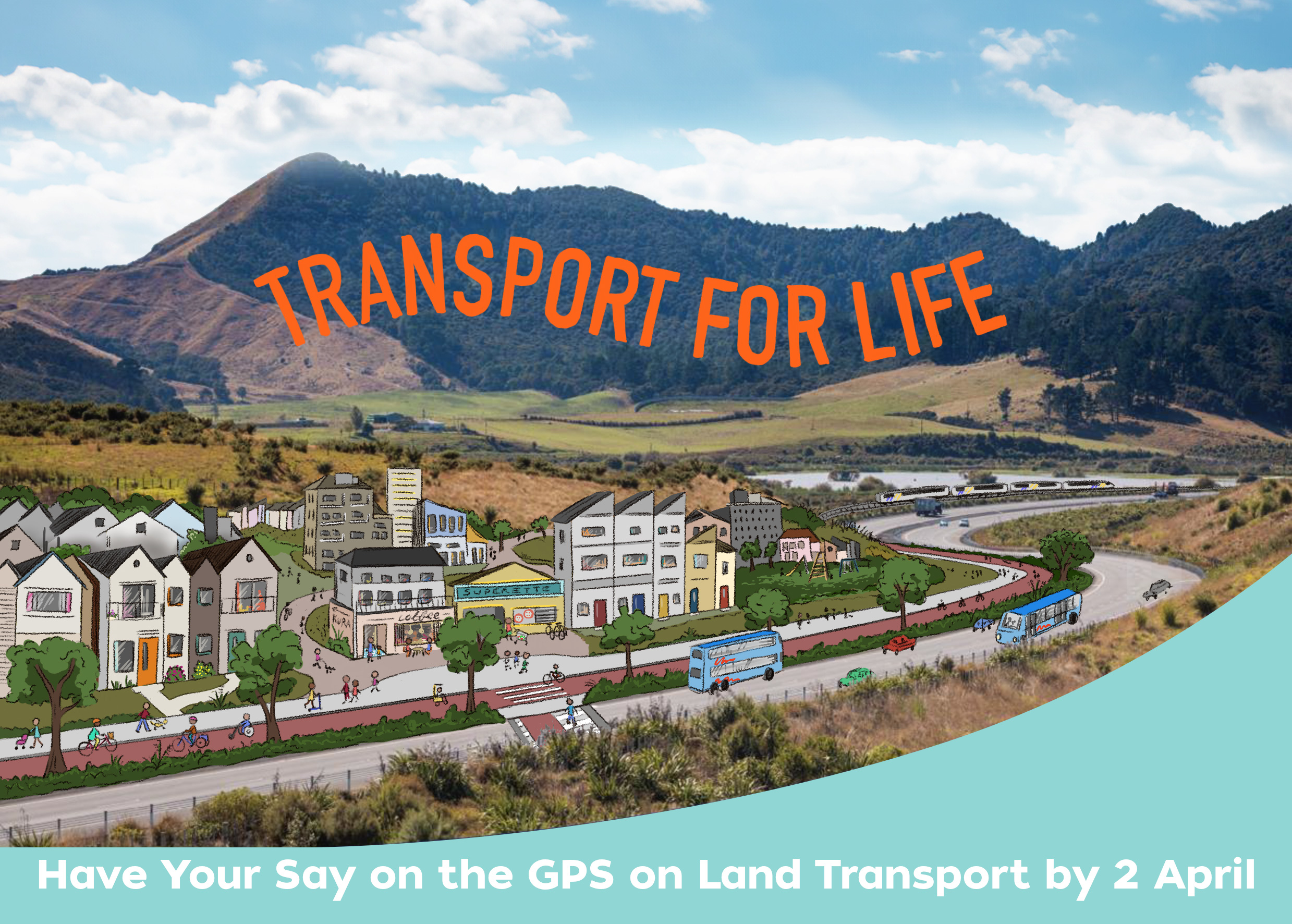OraTaiao’s New Zealand Climate and Health Council are health professionals calling for urgent and fair climate action for real health gains – now, and for our future. Their focus is on advocating for a climate response that optimises climate and health outcomes.
Bike Auckland talked to Dr Dermot Coffey from OraTaiao. Dermot is a General Practitioner based in Ōtautahi Christchurch. His interests include the role of GP’s as environmental advocates, the social determinants of health, and active transport.
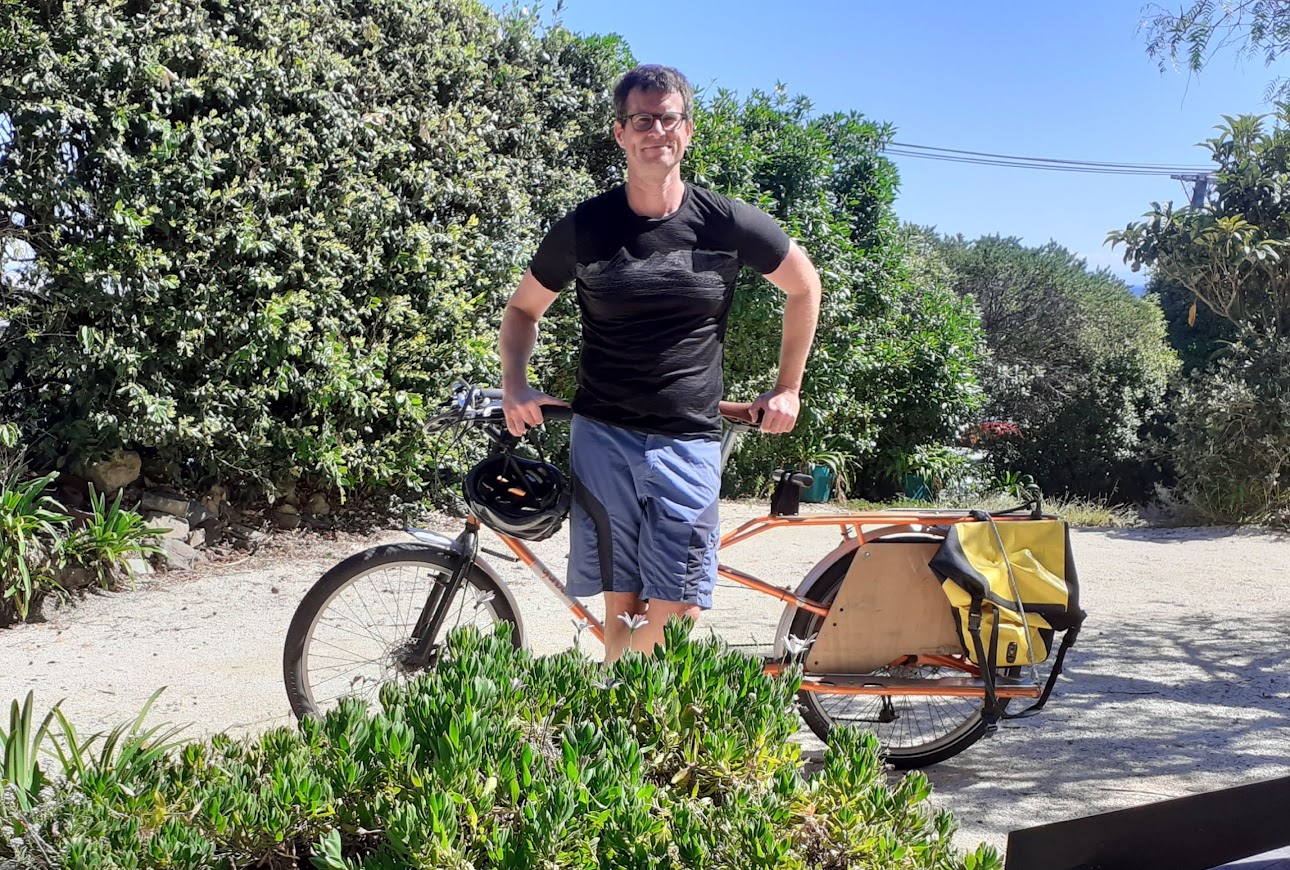
Tell us a little bit about yourself?
I grew up in Co Kerry in the southwest of Ireland, and moved to Aotearoa in 2002 as a change from the pretty terrible working conditions there for doctors. It was supposed to be a year-long trip but we are still here 20 years later! I’ve spent a few years in Hamilton, then Wellington for a good long stretch and Christchurch for the last 4, moving with work (usually my wife’s!). I currently work as a GP at the Health Centre at the University of Canterbury, and have increased my work with OraTaiao over the last 6 years as well.
What is your first memory on a bike?
My first bike was a Raleigh Boxer, I was about 5 I think. This was just before the first BMX boom of the ‘80s. I crashed a lot! I’ve vivid memories of spending weeks steeling myself to take on the biggest hill in the town, and then that feeling of complete loss of control going down it before wiping out gloriously close to the bottom. I was back a few years ago and the hill wasn’t the death-defying plummet I remember. I suspect they’ve made it more gentle over the years.
I’m fortunate to have been able to cycle right throughout my life, and the ability to cycle-commute is an absolutely crucial decision whenever I’ve looked for work. We spent a couple of car-free years in Melbourne, and I’m certain the experience we had of the city was quite different to the one we would have had with a car.
As regards cycling advocacy, I became acutely aware of the need for this when “improvements” were being made to Riddiford Street in Wellington back in 2009 or 2010, and there was absolutely zero provision for cycling. It was staggering that such a crucial thoroughfare, with one of the biggest employers in the city in Wellington Hospital fronting onto it, and which was even then pretty well travelled by people cycling, was not going to have safe cycling infrastructure provided. It’s been really good to see the work that has finally been happening there recently, and that’s a credit to the absolutely tireless work by Cycle Wellington over the years.
Tell us about OraTaiao? What specifically is the link between climate change, cycling, and people’s health?
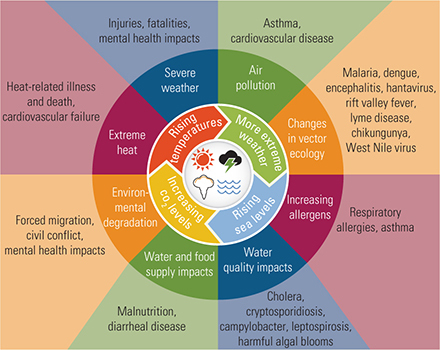
OraTaiao’s entire focus is on advocating for a climate response that optimises the climate and health outcomes. Cycling and active transport in general is one of the areas where this is most easily seen. There are multiple comprehensive studies worldwide showing the health benefits from mode shift to active transport, from improved physical activity, improved air quality and road safety improvements. These health benefits are realised far quicker than any climate benefits will be apparent.
The easiest way to reap these benefits is remove the barriers to cycling, and that implies improving the perception of safety on the roads. From my own experience in the wider health advocacy field, I would have a somewhat jaundiced view of promoting individual behaviour change without improving the environment in which it is to happen. The classic example is smoking, where the reduction in rates of individual’s smoking has only been possible with controls on advertising and sales, and a direct tackling of the malign influence of tobacco companies. Exactly the same approach is needed with transport- there is no point telling individuals to cycle without building the infrastructure, and indeed as we have seen around the world, there is almost no need to advocate once the infrastructure is built.
I would personally go somewhat further however. Firstly, the problem isn’t simply lack of cycling infrastructure, but car-dominance. We need to take direct steps to curtail car-use rather than, for example, promoting cycling infrastructure as “congestion-busting”. Secondly, the health benefits (including the health economic benefits) from cycling infrastructure development are so large, that I believe the ethical position for all healthcare workers should be to actively promote it, and that opposition to active transport promotion is deeply unethical.
How does Te Tiriti fit in with OraTaiao kaupapa?
From the outset, OraTaiao has been an organisation that has sought to enact Te Tiriti o Waitangi. Our founding constitution was written with this purpose in mind, and it is particularly important given the historic and ongoing issues with institutional racism and very low Māori representation within healthcare. We have a Māori co-convenor and an active Māori caucus, and it is not a static area within OraTaiao, as we have developed new governance structures around Te Tiriti in the last year. On a day-to-day level, this means Te Tiriti informing all of our submissions and advocacy work, and direct support (including financial) whenever possible to our allied Māori-led climate advocacy organisations.
On a personal level, I am acutely aware at all times of my own position as an immigrant, and someone who will never be a Pākehā in the sense of someone as a “New Zealand European”. As an outsider looking in, I can see the brutal and ongoing effects of colonisation and land dispossession (more starkly than in Ireland given how recently they have happened here), but my role is to listen, learn and support.
What changes are you calling for? And who do you want to make these changes?
OraTaiao’s main work to date has been advocacy upwards to government and other decision making bodies to centralise health in their climate response. As health professionals we have a particular interest as well in decarbonising the health sector, with the health sector reforms giving an unmissable, though as yet unrealised, opportunity for this. Just like the relationship between individuals and cycling infrastructure, massive individual changes are insignificant compared to the wider societal changes that are needed in transport, energy use and agriculture.
The scientific argument is important and useful when making the case for action, but it’s pretty clear by now that it’s not enough. I would love to see a top-down approach meeting a grassroots, community-based movement somewhere in the middle. How exactly we create that I do not know- perhaps our creative communities need to take the lead!
What do OraTaiao think people, government, or organisations should do to support climate action?
We have a joint call to action which has been signed by many of the major medical organisations and representative bodies in Aotearoa. It is very much a live document, and continues to inform our kaupapa. Our message is a relatively simple one- that all climate action in Aotearoa and worldwide, whether mitigation or adaptation, should put health, wellbeing and equity at its core. This is not simply because we are health professionals with an ethical duty to do so, nor that it will make our day jobs easier (though it will!), but because climate change is simultaneously the biggest health risk and opportunity of the 21st century. The cost of climate action would be paid for with the health benefits alone, but only if the response is strategically designed to optimise these. The awareness of the importance of our collective health has only increased since the start of the Covid pandemic, and can give a way for the public to understand in personal terms the importance and benefits of climate action.
Tell us Ora Taiao’s thoughts on our Liberate the Lane campaign, and the wider campaign for access across Tāmaki Makaurau Auckland’s Harbour for all modes?
The absence of an active transport lane on the Harbour Bridge is an absolute travesty, and the shining example of the blinkered car-dominated thinking that has ruined our urban spaces around the country. We need to be quite clear about this- the infrastructure for an active transport lane is there already, and advised costs of $785 million for a separate crossing (or even the price of Skypath) were the price to maintain the status quo of 8 lanes for motor-traffic alone.
We strongly support the urgent change for one lane to be provided for active transport on an ongoing basis, and would remind Waka Kotahi that the decisions they make to uphold a car-dominated transport system contribute to the deaths of thousands of people in New Zealand every year though road trauma, air pollution and enforced physical inactivity.
